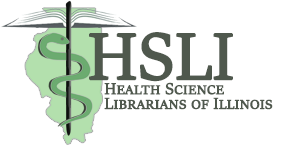CARLI is pleased to share upcoming Professional Development Alliance (PDA) offerings.
Join us for a thought-provoking panel discussion on the impact of ChatGPT on libraries and higher education. Our panelists will begin by providing a foundational overview of what ChatGPT is, the basics of language models, and how these models are trained. They will explore the implications of this technology as well as the need to educate students and faculty on what this tool does. Special attention will be paid to the opportunities and ethical considerations surrounding the use of AI in higher education. As this technology rapidly evolves, it will be critical for libraries to get ahead of the discussion and understand how AI will shape conversations about information privilege and access in the years to come.
Tuesday, August 1, 1:00-2:30 PM CDT
“Redesigning a Library Website”
Developing a website that meets branding guidelines, prioritizes student-focused user needs, and caters to library professional user quirks can be tricky and, at times, downright impossible. This session explores redesigning a library homepage, including planning, building, implementing, and assessing a new library website. Attendees with zero coding experience, those with little to low budget for web redesign, and those from small libraries are all encouraged to attend.
Tuesday, August 15, 1:00-2:00 PM CDT
“Harnessing AI Tools and Resources in Higher Education”
In this webinar, Chad Mairn and Shelbey Rosengarten, St. Petersburg College, will demonstrate powerful AI tools and resources to see their transformative impact on higher education. Like ChatGPT, we will use participants’ questions, feedback, and ideas to foster a conversation as we all explore the potential of AI technologies in academic settings. Whether you are new to these types of tools/resources or are already experimenting with them in your institution, this webinar will provide you with practical knowledge and strategies to maximize the benefits of AI in higher education.
Thursday, August 17, 1:00-2:00 PM CDT
“Colonial Archives in the Classroom: Student and Instructor Perspectives”
Where does research end and creative imagination begin? How might teaching archival literacies to students also involve understanding poetry and storytelling? And how might empowering students to produce original work from the archives allow historians, curators and publishers to re-imagine the voices present and absent in the archives – the primary evidence we have of our past?
This panel brings together the voice of an instructor, Professor Christine Wiesenthal and her undergraduate student Saloni Sharma from the University of Alberta, as well as the PhD student, Shebati Sengupta, from the University of New Mexico. They will be joined by a publisher of primary source collections, Dr. Laura Blomvall from AM, in an effort to stage a conversation between instructors, students and publishers on student success in the context of the colonial legacies in the archive.
Monday, August 28, 1:00-2:00 PM CDT
“Wait? We’re Drawing? Engaging Visual Strategies for First Year Library Orientation”
At the University of Memphis, librarians designed a highly visual lesson to improve first-year students’ knowledge of library spaces. Incorporating research on the relationship between drawing, cognitive engagement, and recall, librarians sent students out to interact and explore the library with a series of guided questions and maps. When students returned, they created a collaborative portrait of the library’s spaces. Presenters Ashley Roach-Freiman, Carl Hess, and Jessica McClure will highlight the lesson plan and the reasons behind their unique form of engagement as well as present findings of post-surveys and collaborative portraits collected during the sessions.
Thursday, September 7, 1:00-2:00 PM CDT
“Successful Workplace Communications Series: Assume Positive Intent”
When someone gets in a disagreement with us, or when someone fails to meet expectations in their work, or when someone acts in violation of rules, procedure, or social convention, we make certain assumptions. We assume they are choosing to act inappropriately. We assume that they understand the problem the same way we understand it. We assume that if they truly meant well, they would not be acting the way they are acting.
In this second session of the Successful Workplace Communications Series, we will explore a big-picture perspective that will assist you with all interpersonal communications in the workplace. Ben Mead Harvey will present the case that others’ intentions are irrelevant in deciding how to handle situations. Further, he will propose that you always assume they are acting with good intentions, even when there is evidence to the contrary. We will discuss techniques that encourage you to assume positive intent and explore the effectiveness of those strategies.
Tuesday, September 12, 1:00-2:00 PM CDT
